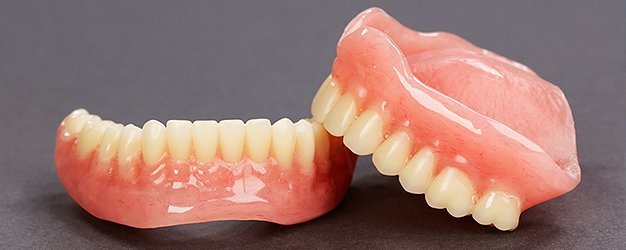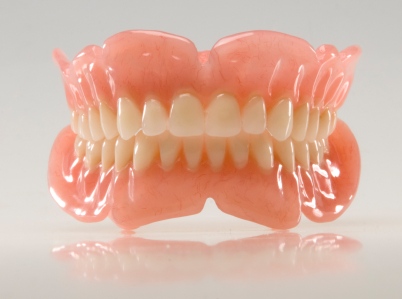Dentures are removable artificial teeth, which are attached to adjacent teeth with clasps or rest directly on the gum. They may be partial dentures, which replace one or more missing teeth through clasping onto nearby natural teeth, or full dentures, which replace the entire upper or lower jaw and are stabilized onto soft tissues and bone.
Advantages of dentures:
• Prevent adjacent teeth from shifting or titling and support facial muscles.
• Recover speech, pronunciation and the ability to chew food, all of which are affected when teeth are lost.
• The procedure does not require reshaping of adjacent teeth or anesthesia.
Disadvantages of dentures:
• Require meticulous care, including repair, cleaning, relining and soaking every night.
• Pressure exerted onto soft tissues and bone may cause inflammation, ulceration or bone loss.
• Require covering the roof of the mouth, which decreases the ability to taste food.
• Do not completely restore chewing and biting ability.
• Made from non-precious materials such as plastic.
• May cause bad breath if unclean.
• Clasps and hooks of partial dentures promote teeth decay if not well-cared for.
• Full dentures are unstable and cause anxiety (fear of them falling out).
• Full dentures require the use of denture adhesives.
To adjust to new dentures:
• Eat softer foods at both sides to get used to the new dentures.
• Practice reading aloud to allow tongue to get used to the dentures.
• Expect extra saliva in the first few weeks as mouth adjusts to the dentures.
• Use denture brush and denture cleaner to keep dentures clean.
• Soak dentures in antiseptic solution at night.
If denture needs adjustments, please visit your doctor. DO NOT attempt to adjust it on your own.


